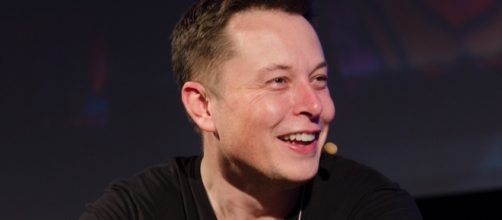Elon Reeve Musk, the 46-year-old South African-born Canadian-American, has been mind mapping and blueprinting various architectural advances to push forward the idea of evolving the speed and safety of transportation throughout America and space, as well as exploring possible human colonization on Mars. At the age of 12, after Musk began teaching himself computing, he sold the code for a BASIC-based video game he created called "Blastar" to a technology magazine for approximately $500.
After studying as an undergraduate at Queens University for two years, Musk transferred to the University of Pennsylvania where he graduated with a Bachelor of Science degree in physics and economics.
By the time he was 24, he had moved to California and was accepted into Stanford University to begin a PhD in applied physics and materials science only to drop out a mere 48 hours after stepping foot on the Stanford campus to start up his own company.
PayPal
After starting Zip2, a web software company, with his brother and $2,000 of their father's money, Musk and his brother found success in the company and later sold it to Compaq, a PC supplier, in 1999 for approximately $300 million. That same year Musk co-founded X.com, an email payment company, using some of the funds made from the sale of Zip2. X.com later merged with another company that provided money transfer services and was renamed PayPal in 2001.
Musk headed PayPal as their CEO until October 2000, although he chose to remain on the board.
SpaceX
After Paypal was acquired by eBay in 2002, Musk diverted his focus to his next project, SpaceX. The primary basis of the SpaceX company is to ultimately enable people to inhabit other planets whilst advancing pre-existing space technology.
A well-known spokesman against global warming Musk is affirmed in the belief that in order to prevent eventual human extinction that we must make propulsive plans towards colonizing on other planets, primarily Mars due to the planet's proximity and similarities to Earth.
Tesla INC.
In regards to a more immediate aid in the fight against global warming, Musk, in 2004, invested in an energy storage automaker called Tesla Motors (now known as Tesla INC.).
The company produces electric cars with lithium-ion battery energy storage and through the SolarCity subsidiary, residential solar panels. In 2007, when Tesla underestimated the cost for its start-up vehicle, Musk then invested more money by putting $20 million into the company to help produce Tesla's first vehicle, the Roadster, garnering widespread attention for being the first electric sports car.
The company's second vehicle, the Model S, an electric luxury sedan, debuted in June 2012 and has been the best selling plug-in electric car for the last two years. Musk, who still remains as the company's Chairman and CEO, said he spends about 80 percent of his time at Tesla on designing and engineering the next-generation product rather than more business oriented work.
Tunnel travel with The Boring Company
Elon Musk's most promising, and possibly immediate, venture consists of boring holes underground at surface access points with the goal of providing earthquake-proof tunnels equipped with elevator panels that allow cars and other vehicles to transport to other regular access points at speeds of over 600 mph. After descending to a tunnel network, each car or cargo will slide into the flow of traffic aboard a sled. Therefore there is no actual driving in the underground routes, but instead, each vehicle will be ferrying around in tight synchronization with each other. The tunnels will stack, crisscrossing and overlapping each other for maximum efficiency across many stacked layers.
When will it happen?
Now there's still a long way to go before The Boring Company's work results in anything substantial or any transportation network cities can think about allowing someone to build and operate these, but this should result in a spectacular demonstration of the whole idea behind the plan in action. Between his bold monetary contributions and investments, architectural and technological advances along with his forward logistical thinking as Chairman and CEO within companies SpaceX, Tesla and now the Boring Company, Elon Musk is making strides that will without a doubt bring us closer to the Future.


